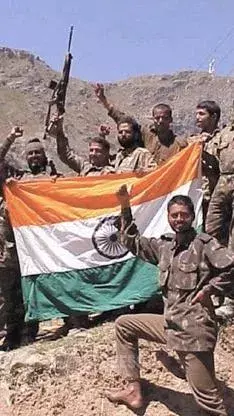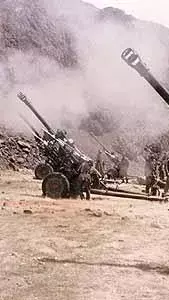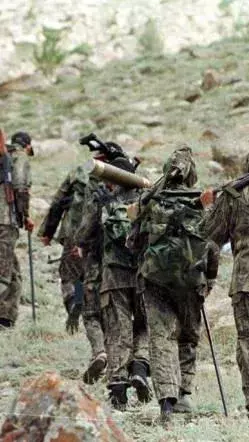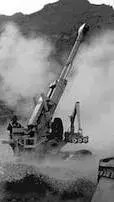
Operation Vijay: India’s Triumph in the Kargil War

The Kargil War took place between May and July 1999, lasting approximately two months.

The conflict occurred in the Kargil district of Jammu and Kashmir, along the Line of Control (LoC), which serves as the de facto border between India and Pakistan.

The war began after Pakistani soldiers and militants infiltrated into Indian territory, occupying strategic positions in the Kargil region.
India launched Operation Vijay to drive out the infiltrators. The operation involved intense fighting in difficult mountainous terrain.
The war was notable for being fought at high altitudes, with many battles occurring at elevations above 16,000 feet, making it one of the highest-altitude conflicts in history.
The Indian Air Force played a crucial role in the conflict, launching Operation Safed Sagar to provide aerial support to ground troops and targeting enemy positions.
The conflict resulted in significant casualties on both sides. India reported over 500 soldiers killed, while Pakistani casualties were estimated to be higher.
The international community, including the United States and other major powers, called for a peaceful resolution and condemned the infiltration by Pakistani forces.
India successfully recaptured most of the positions occupied by the infiltrators by the end of July 1999. The conflict ended with a decisive Indian victory, and the remaining intruders were forced to withdraw.
The Kargil War highlighted the need for improved intelligence and military preparedness. It also reinforced the importance of international diplomacy in addressing cross-border conflicts. The war is commemorated in India every year on Kargil Vijay Diwas (Kargil Victory Day) on July 26th.